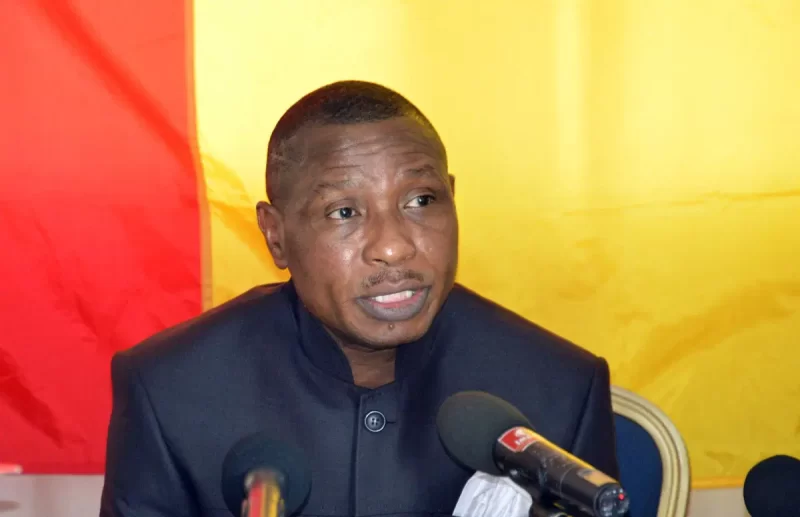Breaking News
Ex-dictator Camara of Guinea imprisoned for 20 years for 2009 massacre
Defence lawyers had argued that reclassifying the charges as crimes against humanity on the day of the ruling would rob them of an opportunity to defend themselves and infringe their right to a fair trial.

Following an unprecedented trial concerning a 2009 massacre at a political demonstration, a Guinean court on Wednesday sentenced former dictator Moussa Dadis Camara to twenty years in prison for crimes against humanity.
After the trial, which lasted almost two years, seven more defendants were given sentences of up to life in jail. Rights campaigners applauded the decision.
For the hearing, which was highly anticipated by the relatives of the victims for almost 15 years, a large number of security personnel had been mobilized.
The court had declared the charges to be crimes against humanity just before sentencing.
The court also ordered for compensation to be paid to the victims, running from 200 million to 1.5 billion Guinean francs ($23,000 to $174,000).
– An end to impunity –
On September 28, 2009 and in the following days, members of Dadis Camara’s presidential guard, soldiers, police and militia brutally suppressed an opposition rally at a stadium in the suburbs of Conakry.
In one of the darkest chapters in the West African nation’s history, at least 156 people were killed, hundreds more wounded and 109 women raped, according to a UN-mandated commission of inquiry.
“This trial is of the utmost importance to me,” Kadiatou Sow, who was raped during the massacre and its aftermath, told AFP before the sentencing.
“I want these soldiers to pay a heavy price with sentences befitting their crimes,” added Sow, who also lost her husband in the violence.
Alfa Amadou DS Bah, lead lawyer for the plaintiffs in the case, underlined the importance of the judgement.
“It’s the first time a former head of state has been convicted for such serious crimes, and senior military officers too,” he said.
“I think that this decision must sound the toll against impunity in this country. It’s a great relief for the victims,” he added.
Human Rights Watch also welcomed the judgement.
“The Guinean court’s landmark verdict offers long-awaited justice for victims,” said Tamara Aburamadan, an international justice legal counsel for HRW.
“It puts high-level perpetrators in Guinea and elsewhere on notice that justice can prevail.”
– Crimes against humanity –
Ten of the 12 accused were present to hear the court’s judgement.
Former junta chief Dadis Camara, dressed in a traditional green and yellow boubou, remained motionless as the verdict was read by the court in the capital Conakry.
Along with 11 other government and military officials, Dadis Camara had been accused of murder, sexual violence, torture, abduction and kidnapping.
He always denied any responsibility, blaming his subordinates.
The trial — which began on September 28, 2022, the anniversary of the killings — gripped the West African nation, with the courtroom drama carried on television and radio.
Judges heard from 11 defendants — who blamed each other for the massacre during the trial — as well as a dozen witnesses. Around 100 victims provided chilling testimonies.
The chief prosecutor had called for Dadis Camara and other defendants to be sentenced to life in prison.
– Moment of truth –
Defence lawyers had argued that reclassifying the charges as crimes against humanity on the day of the ruling would rob them of an opportunity to defend themselves and infringe their right to a fair trial.
Both the accused and the plaintiffs have 15 days to appeal the verdict. The prosecutor’s office will have two months.
The trial has taken place against a background of repression of both the opposition to Guinea’s military rulers and the media.
The day before the verdict, protests against the “forced disappearance” of pro-democracy activists Oumar Sylla and Mamadou Billo Bah paralysed parts of Conakry, with several injured in clashes between demonstrators and the police.
Though the authorities deny holding the pair, civil society organisations say they are being held incommunicado. They have called for further demonstrations.
International organisations and human rights activists have highlighted the unprecedented nature of the trial in Guinea.
It is the first of its kind to challenge the impunity of the country’s security forces, which are seldom held to account, according to the UN probe.










